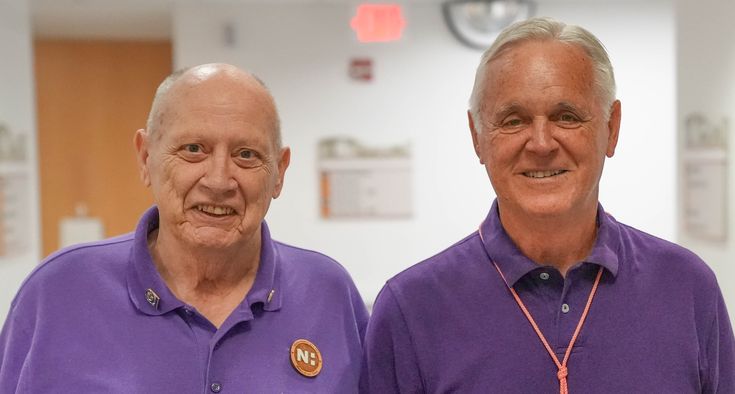Even though anxiety and depression are treatable mental health conditions, most military personnel never seek help. They worry it could cost them their job.
That’s because, for both civilians and enlistees, stigma is one of the biggest barriers to behavioral health treatment. To help overcome this obstacle and promote a culture of privacy, the new psychiatry residency program at Novant Health New Hanover Regional Medical Center is providing Eastern North Carolina’s residents, including its large military population, with one-on-one care.
The four-year residency program, a partnership with the UNC School of Medicine and Naval Medical Center Camp Lejeune, is accelerating access to care for the largest Marine Corps base on the East Coast. Marine Corps Base Camp Lejeune in Jacksonville, North Carolina, is home to more than 38,000 active-duty members and their families.
During summer 2024, the program’s first resident physicians began training at New Hanover Regional Medical Center in Wilmington to treat both military and civilian patients experiencing mental health issues of all types, including traumatic brain injuries, post-traumatic stress disorder and substance use disorders, said psychiatrist Dr. Julia Triggs, the program’s director.
Each year, the program will accept three military and four civilian resident physicians. During training, they will provide mental health care services for veterans and active-duty family members at Naval Medical Center Camp Lejeune. Once fully trained and licensed as military psychiatrists, they can help colleagues wherever they are, at home or abroad.
Few programs like this exist. The residency is working to address the perennial shortage of mental health care professionals in the Jacksonville area while also encouraging service members to open up about what’s on their minds.
Psychiatric services to help you manage your mental, emotional and behavioral health.
Training the first resident physicians

Psychiatrist Dr. Andrea Karsten is one of the program’s first civilian residents. She joined the program after graduating from the Howard University College of Medicine in Washington, D.C.
First-year resident physicians rotate between working in inpatient and outpatient care every few weeks to deepen their expertise on a wide range of patients and conditions.
Karsten started in the emergency department at New Hanover Regional Medical Center. She saw everything from diabetes complications to heart failure, and also helped admit patients in need of inpatient behavioral health care services. Further along in the program, Karsten and her fellow resident physicians will meet with patients experiencing traumatic brain injuries and severe mental illnesses.
“This residency gives you the breadth of everything,” Karsten said. “In the emergency department, I made sure patients did not have something life-threatening and were safe to go home. Some come in and say, ‘I’ve been having a really hard time and want help,’ or ‘I’ve been thinking about harming myself.’ We do a few tests to make sure they’re stable before transitioning them to behavioral health observation.”
Karsten has a personal connection to the military: Her husband, a Marine, has served at Camp Lejeune in Jacksonville, about two hours from Wilmington, for 17 years. The couple’s demanding careers require them to juggle child care, commutes and fluctuating work schedules.
Best doctors. Amazing nurses. Remarkable care.
Read more here about how Novant Health is caring for its communities.
“That can all cause a lot of stress,” Karsten said. “One thing I’ve learned is that having support and family nearby is everything for my mental health. I have two step kids in Jacksonville, so when I became aware of the psychiatry residency program, I thought, ‘This could be perfect.’”
Reducing stigma and privacy concerns
Even though seeking treatment will not jeopardize someone’s military career, about 60-70% of service members experiencing mental health symptoms avoid asking for help, the Military Health System reports. And aside from fearing repercussions, many fear the stigma that can accompany asking for help.
“I think that when it comes to psychiatry, it’s been forgotten that people need a safe space and their privacy,” Karsten said. “So often, appointments require revealing why you’re there in front of a bunch of strangers, and that’s not conducive to helping people.”
Until recently, the U.S. Department of Defense (DoD) listed depressive and bipolar disorders among disqualifying conditions. But the 2021 passage of the Brandon Act began encouraging service members to seek mental-health evaluations confidentially. And last year, the DoD pledged to strengthen suicide prevention efforts by promoting the seeking of care, without military repercussions.
As part of this effort, Novant Health’s new partnership with Naval Medical Center Camp Lejeune is offering discreet care. “We follow Department of Defense guidance designed to help dispel stigma,” said Riley Eversull, public affairs officer for Naval Medical Center Camp Lejeune. “Residents follow strict guidelines to help maintain service member privacy regarding mental health care.”
This approach is key to creating a safe environment and ensuring that those in need of mental health care can access treatment without fear.
“I’m hoping that we are creating an environment that makes people feel protected and want to engage with the program,” Karsten said. “The military is a vulnerable population that deserves all the support we can give them. And psychiatry requires a personal touch.”












